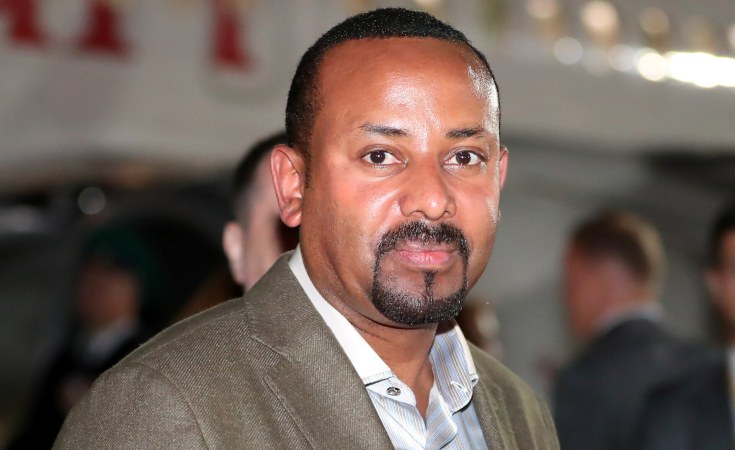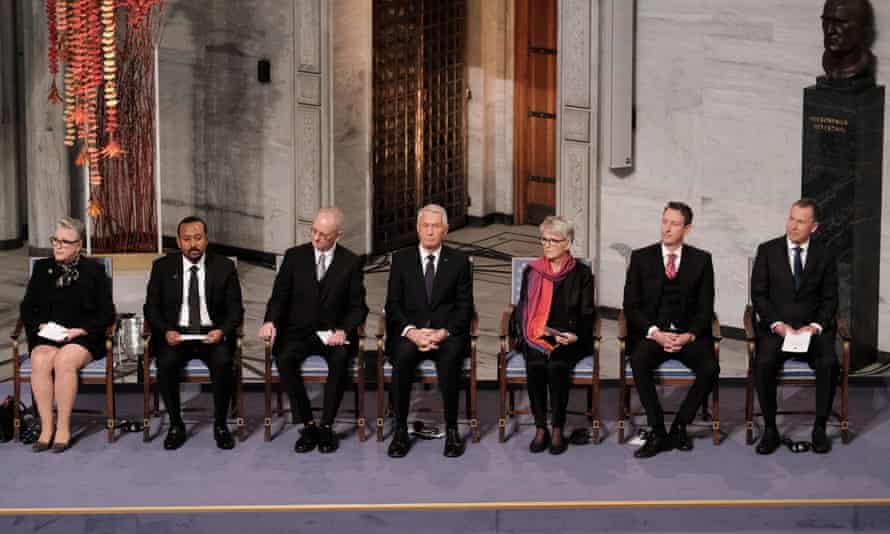“Chinese loans to the public sector in Africa is large but surprisingly decreasing“
Source: Carnegie Endowment for International Peace
ZAINAB USMAN
- JUNE 02, 2021
- Source: GettySummary: The volume of Chinese loans to the public sector in Africa is large but surprisingly decreasing. New data provide insights on the scale and terms around this massive lending portfolio but raise questions around transparency, access, and voice on Africa-China relations.Related Media and Tools
It is no doubt that China is a global power. Although it only crossed the $10,000 GDP per capita mark as an upper middle-income country recently, China is the world’s second-largest economy. For many countries, from Asia to Africa to parts of Europe, China has become the most important economic partner. In 2009, the country eclipsed the United States to become the biggest trade partner for African countries in aggregate. It is the largest bilateral lender for public sector loans across the African continent (see figure 1). Despite this large economic footprint, there is often very little information on the specifics of its lending and investments in the public domain.
However, two different data sets on Chinese lending for development projects recently became available. The first is the Chinese Loans to Africa (CLA) database by the China Africa Research Initiative at the Johns Hopkins School of Advanced and International Studies (SAIS-CARI), which is now managed by the Boston University Global Development Policy Center. This database covers a twenty-year period, from 2000 to 2019, during which “Chinese financiers signed 1,141 loan commitments . . . with African governments and their state-owned enterprises.” In the second dataset, How China Lends, a team of researchers at Aid Data at the College of William and Mary studied one hundred loan agreements between Chinese government entities and twenty-four different low- and middle-income countries; 47 percent of the contracts in the sample are with African borrowers. Together, these two datasets shed light on the volume, distribution, terms, and entities involved in the relationship between Chinese financiers and sovereign jurisdictions in Africa.
FIVE KEY TAKEAWAYS ON CHINESE LENDING IN AFRICA
1. China’s lending portfolio is large but declining. China provides the largest volume of loans, bilaterally to African countries, but the nature of these loans is changing. According to SAIS-CARI researchers, Chinese financiers have committed $153 billion to African public sector borrowers between 2000 and 2019. After rapid growth in the 2000s, annual lending commitments to Africa peaked in 2013, the year the Belt and Road Initiative (BRI) was launched. By 2019, though, new Chinese loan commitments amounted to only $7 billion to the continent, down 30 percent from $9.9 billion in 2018 (see figure 1).

Note: The figures for China reflect loans at both concessional and commercial rates but exclude grants and other forms of foreign aid, which are comparatively small in volume. The figures for the United States, Germany, the UK, and France include both concessional loans and grants as well as other forms of aid flows.
2. Chinese creditors are increasingly commercially oriented. There is a growing presence of commercial financiers from China in African countries. The SAIS-CARI researchers identified only three Chinese lenders in the year 2000, including the Export-Import Bank of China (China Eximbank), which offers government-subsidized concessional loans—which are loans that are extended at below-market interest rates or have long grace periods to offer better deals to borrowers. But by 2019, there were over thirty creditors—most of which provided loans at commercial or non-concessional rates. These commercial lenders included the China Development Bank (which, despite its name, provides non-concessional loans), the Industrial and Commercial Bank of China (ICBC), the Bank of China, and other, nonfinancial entities such as the state-owned hydropower engineering and construction company Sinohydro. China Eximbank and to a lesser extent the China Development Bank are still the largest creditors, accounting for eighty-four of the one hundred debt contracts analyzed by the team at Aid Data.
Zainab Usman is director of the Africa Program at Carnegie. Her fields of expertise include institutions, economic policy, energy policy and emerging economies in Africa.
3. The controversial resource-backed lending model persists. The resource-backed lending model for financing infrastructure projects—in which the borrowing country commits future revenues to be earned from its natural resource exports to pay loans secured from Chinese creditors—still exists in countries like the Democratic Republic of Congo (DRC), Ghana, and Guinea. When the going is good, this model works. It helps a high-risk borrowing country secure needed financing; it assures the creditor of repayment since the export revenues are directly deposited in an escrow account with no risk of embezzlement by corrupt actors in the borrowing country; and it allows for the speedy completion of roads, bridges, and other infrastructure projects. When the going gets tough—especially in the event of a collapse of volatile commodity prices, as so often happens—some borrowers then turn to the International Monetary Fund (IMF) for emergency assistance. A fine but crucial point here is that the range of commodity price fluctuations is calculated in the resource-backed loan, and thus, the lender bears the risk of debt default if collateral is not sufficient. Therefore, an oil price crash does not necessarily mean the borrower will run into debt distress unless other contingent factors come into play.
Angola, most prominently, experienced the full gamut of the highs and lows of resource-backed financing. In fact, this lending model was largely pioneered in that central African country when China became its lender of last resort: China thereby financed Angola’s postwar reconstruction projects from 2004 onward, including a $3.5 billion Kilamba Kiaxi satellite town in the outskirts of Luanda. Angola ran into problems when commodity prices crashed in 2015 and necessitated the negotiation of IMF stabilization assistance. Despite this rocky start, the financing model persists in other countries. As the SAIS-CARI researchers note, in the DRC, loans backed by mineral exports continue to finance infrastructure projects under the Sicomines agreement. In 2017 Guinea entered into a bauxite-backed financing arrangement with ICBC and the China Eximbank for $587 million, from which two road projects are to be constructed. Since 2011, Ghana has signed a number of these resource-backed loans. One of these is a $550 million line of credit backed by bauxite arranged through Sinohydro to finance road projects.
4. Lending is mostly to infrastructure and other economic sectors. A sectoral decomposition of Chinese loans shows that more than 65 percent of lending goes to infrastructure sectors, in both the SAIS-CARI and Aid Data databases. In comparison, traditional lenders—mostly from Europe and North America as well as Japan in the OECD-Development Assistance Committee (OECD-DAC) countries—focus more than half (55 percent) of their financial assistance—a mixture of grants and loans—on social sectors like health, population, education, and humanitarian aid (see figure 2). The infrastructure sectors include industry, mining, construction, energy, communication, transport and storage, and water supply and sanitation. For China, infrastructure is king.

Notes: OECD-DAC members comprise of twenty countries of the EU, the EU itself as a single entity, and Australia, Canada, Japan, Norway, New Zealand, South Korea, Switzerland, the UK, and the United States. Social sectors include health, education, governance and civil society support, water, and population; economic sectors include communications, energy, business, transport, and banking; and production sectors include agriculture, forestry, industry, mining, and trade. The figures for China reflect loans at both concessional and commercial rates but exclude grants and other forms of foreign aid. The figures for the United States, Germany, the UK, and France include both concessional loans and grants as well as other forms of aid flows.
5. Sophisticated contract terms are needed to manage high-risk borrowers. China has become a highly sophisticated lender to developing countries, building in large part on its experience with African countries. According to the authors of the How China Lends analysis, Chinese loan contracts contain “more elaborate repayment safeguards than their peers in the official credit market,” which basically guarantee repayment by the borrowing countries. These contracts also contain provisions that “give Chinese lenders an advantage over other creditors.” These unique provisions include a commitment by the borrower to: keep contract terms undisclosed unless otherwise required by law, maintain an escrow account and other special bank accounts to secure debt repayment, exclude the debt from restructuring in the Paris Club of official bilateral creditors and other collective restructuring initiatives (such as the World Bank’s Debt Service Suspension Initiative), and allow the lender to terminate the agreement and demand immediate full repayment if the borrower defaults on its other lenders. These confidential contracts have only grown in importance over time (see figure 3).

Although these sophisticated contract terms guarantee repayment for Chinese lenders and allow otherwise high-risk countries access to needed finance, they can cause problems. Mainly, confidentiality clauses prevent citizens in both China and borrowing countries from having information about these loans and holding their governments to account.
UNADDRESSED QUESTIONS
Having examined these informative data sets and the accompanying publications, some pertinent questions come to mind. These questions center on areas where more information, data, and analyses are needed to meaningfully move the needle for effective public policy.
- Is there a structural decline or a cyclical rebalancing of Chinese lending to Africa? The decline in Chinese finance to African countries seems like more of a rebalancing. Chinese policymakers could be responding to pressure, including from within China, to make BRI investments more transparent and sustainable. Precisely such a commitment was made at the Belt and Road Forum in 2019, when Chinese President Xi Jinping vowed to increase the transparency and fiscal sustainability of BRI projects. This may translate to less lending in high-risk jurisdictions where their exposure to defaults and other risks is already high (such as Angola or Zambia) in favor of more predictable, middle-income countries (like Ghana, Nigeria, or South Africa), as the SAIS-CARI researchers also note.
- Apart from Chinese lending, how else can African countries meet their financing needs? China’s investments in Africa have come under tremendous scrutiny from the United States and Europe. China is also frequently invoked in partisan politics in some African countries, like Kenya, Nigeria, and Zambia. Yet China has made such headway in Africa precisely because it was, for a long time, the lender and investor of last resort when aid and other types of financing from OECD-DAC countries was not available. Africa has infrastructure financing needs that require between $130 and $170 billion per year, according to the African Development Bank. As figure 2 above shows, OECD-DAC lenders hardly finance the airports, railways, roads, bridges, pipelines, dams, ports, and other hard infrastructure projects needed in African countries. And institutional investors in major economies are still very reluctant to venture into African countries. It is precisely to address this gap that several countries, including Ghana, Kenya, and Zambia, have tapped the Eurobond market, which has contributed to their indebtedness. In February 2021, the African Union announced plans to set up an infrastructure fund that will draw on sovereign wealth, insurance, and retirement funds from its large member states. Qatar is also setting up a $2 billion infrastructure fund for Sub-Saharan Africa to be housed in Abidjan, Cote d’Ivoire.
- Are other creditors more transparent than Chinese lenders? China’s institutional opacity around its government-to-government ties is well known. The confidentiality clauses that undermine domestic accountability should be done away with. But China is not the only creditor in many of these countries, where nearly half of their public sector debt is owed to private lenders (see figure 4). Information around financial flows to developing countries from other bilateral, multilateral, and private sector creditors in Europe, North America, Japan, and South Korea is available via the OECD-DAC database. However, the fine details and terms of the loan agreements between individual OECD-DAC donors and African countries are not easily and publicly available. Therefore, there needs to be more transparency from creditors across the board so that citizens can hold their governments to account.

- What do Chinese scholars think? Much of the analysis on Chinese lending practices in developing countries is generated by scholars in European and North American research institutes. But China also has several world-class universities and research institutes. What do scholars in China think about their country’s investments and loans abroad? What reforms to this arrangement are they pushing for? Despite perceived barriers to academic freedom, several Chinese scholars have sought to add much-needed nuance to this debate by explaining the diversity of public and private Chinese actors involved in economic engagements abroad, China’s distinct approach to development cooperation informed by its own experience, and even suggested reform proposals. Yet these nuances are not always reflected in the global debate. In a direct response to this new data trove published in the Chinese Communist Party’s Global Times, Song Wei, a deputy director of the International Development Cooperation Institute (part of the Chinese Academy of International Trade and Economic Cooperation) describes these loans data as unable to “tell the whole story” due to “inherent flaws of scattered sources which make up its database.”
- What do African scholars think? There are so few African voices in the global debate about Chinese lending in Africa. There is a fair amount of local media coverage of Chinese-financed rail lines, airports, and bridges in Ethiopia, Kenya, and Nigeria, in heated parliamentary debates on a country’s fiscal situation, or even in electioneering campaigns in Zambia. However, there is a conspicuous absence of African scholars’ analyses from a global debate that can only be enriched by their voices and lived experiences. The systemic exclusion of African voices in global centers of knowledge production persists, as evidenced by low and declining acceptance rates of scholarship by African researchers in prestigious journals. But this exclusion persists in large part due to how some African leaders have undermined their own universities and research centers through lack of funding and political interference. Still recovering from these structural challenges, a few China-Africa research projects and work streams exist: at the Wits School of Journalism in South Africa, the Lagos Business School in Nigeria, and the Beijing-based African research consultancy Development Reimagined. More African scholarship and narratives are needed to contextualize this important debate playing out on the continent.
End of document































